VAF 2023 Annual Meeting
May 17-20, 2023
Plymouth, Massachusetts
To view pertinent information directly, use the following links:
About the Conference Conference Schedule Paper Sessions Lodging & Travel Conference Costs Registration
- Home
- Conferences
- Past conferences
- Plymouth 2023
- VAF 2023 Annual Meeting
VAF 2023 Annual Meeting
May 17-20, 2023
Plymouth, Massachusetts
Ritchie Garrison, Jeff Klee, Sally McMurry, Ian Stevenson, Myron Stachiw.jpg)
The Vernacular Architecture Forum is pleased to announce its annual conference in May 2023. We will be located in beautiful Plymouth, Massachusetts, at Hotel 1620, a short walk from the harbor and the Town’s many memorials and historic buildings. To Native Americans who were members of the Wampanoag Tribe, the site was known as Patuxet. The English settlers who arrived in December of 1620 resided on the lands natives had abandoned during a devastating epidemic a few years earlier. Although they were not called the Pilgrims until the late eighteenth century, their story became part of America’s founding mythology. The real Plymouth is part of a regional habitat shaped by its maritime world, layers of cultural history, and episodes of immigration. Its buildings, monuments, and landscapes offer exceptional opportunities to investigate the past, reflect on continuities and changes, and consider our stewardship of the future.
Thursday’s tours will include a study of a rare set of early buildings from the 17th and 18th centuries in Hingham, Marshfield, Duxbury and Kingston, Massachusetts; a visit to neighborhoods and buildings on Martha’s Vineyard; and an in-depth study of the iron industry and cranberry bogs in Wareham and Carver, Massachusetts.
Join us for the Vernacular Architecture Forum’s Annual Conference in Plymouth!
.jpg)
Wednesday Registration, Reception, Keynote, and Awards
The conference will be headquartered in the Hotel 1620 Plymouth Harbor, 180 Water Street. The conference officially opens on Wednesday, May 17th, with a early evening reception at the Pilgrim Hall Museum (Alexander Parris, 1824.) The opening remarks, keynote address, and awards ceremony will be held in the Church of the Pilgrimage (1840 & 1897) at Town Square. Wednesday events begin at 5:30 pm, so plan your travel accordingly.
Thursday Field Tours
Thursday’s three bus tours map the diverse architectural legacies of the landscape of Southeastern Massachusetts.
Martha's Vineyard
The tour, limited to the first 40 people to register, departs at 7:00 am from 1620 Hotel for the Ferry terminal at Woods Hole for the 45 minute trip to Martha’s Vineyard. The tour will focus on the many historic communities that continue to exist on the island. It includes stops at the Gay Head Wampanoag Tribe Reservation in Aquinnah; the maritime community of Edgartown; the summer tourist communities, religious and secular, at the Methodist Camp Meeting Grounds in Oak Bluffs and West Chop, and the rural agricultural communities of Chilmark and West Tisbury. Return to the hotel in Plymouth about 9:00 pm. Myron Stachiw will lead this tour.
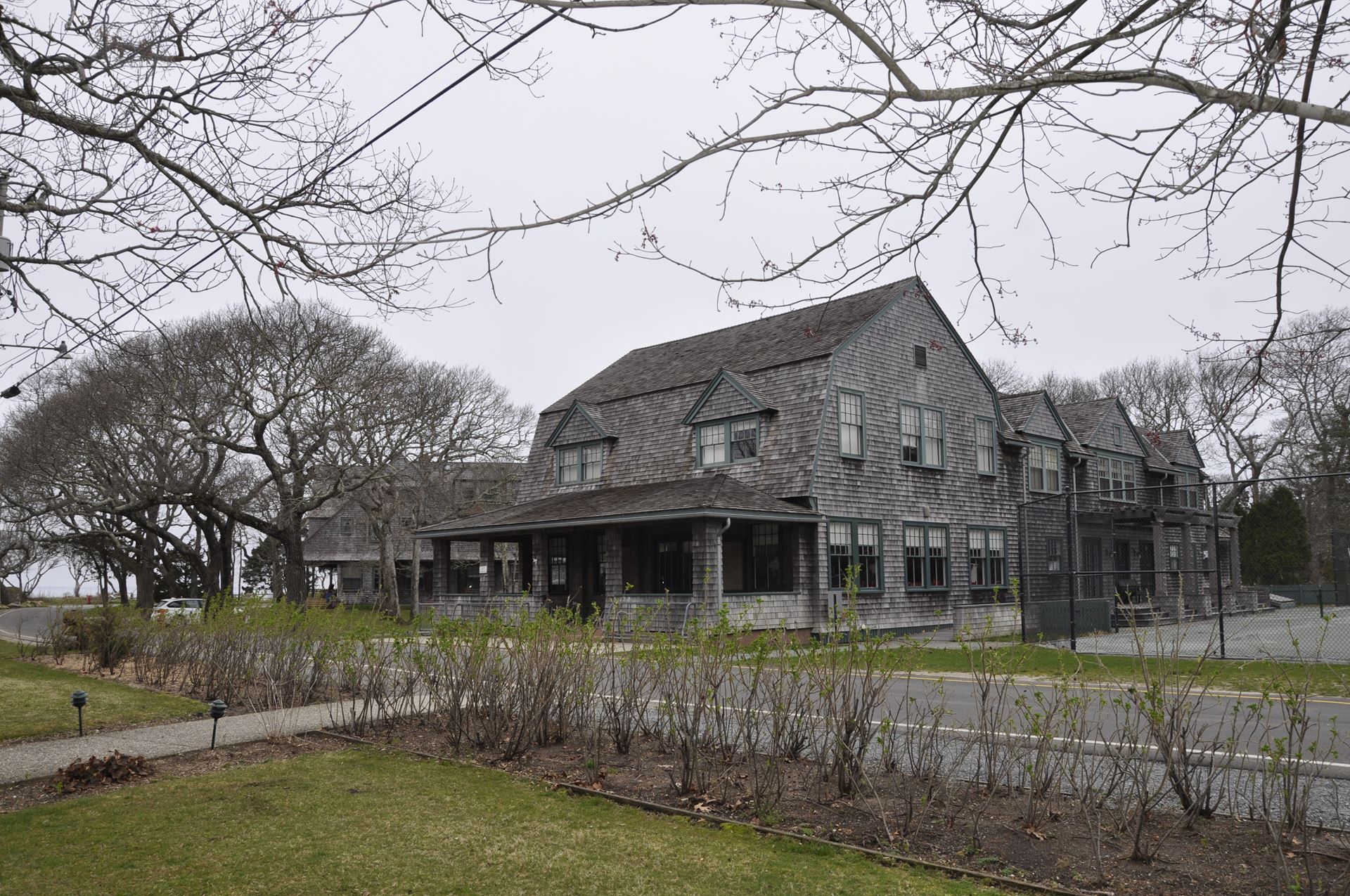
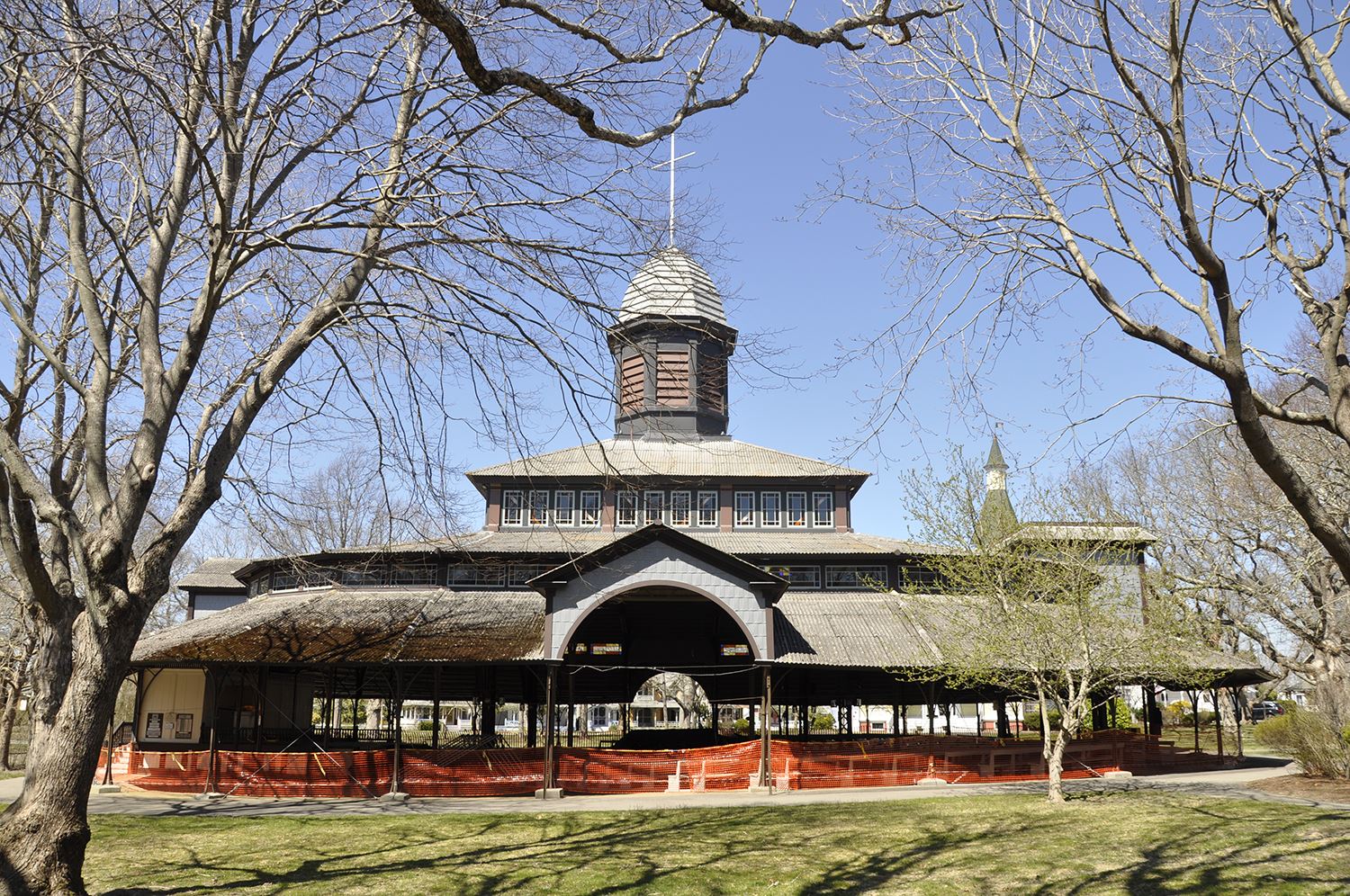
Early Building and Builders in Southeastern Massachusetts
This tour, limited to the first 50 people to register, focuses on the development of early New England architecture, including buildings constructed from the end of the seventeenth century to the early national period. Extending beyond the boundaries of the former Plymouth colony into Massachusetts Bay, it provides an excellent opportunity to closely examine New English timber framing, including five dwellings, an exceptionally rare barn, and an iconic meetinghouse, all initially constructed prior to 1720 and adapted and expanded in subsequent decades. A handful of later buildings complement these, including a late-eighteenth-century house and an important woodworkers’ shop, an early-nineteenth-century academy and a late-nineteenth-century boat house. This tour will be led by Claire Dempsey and Jeff Klee.
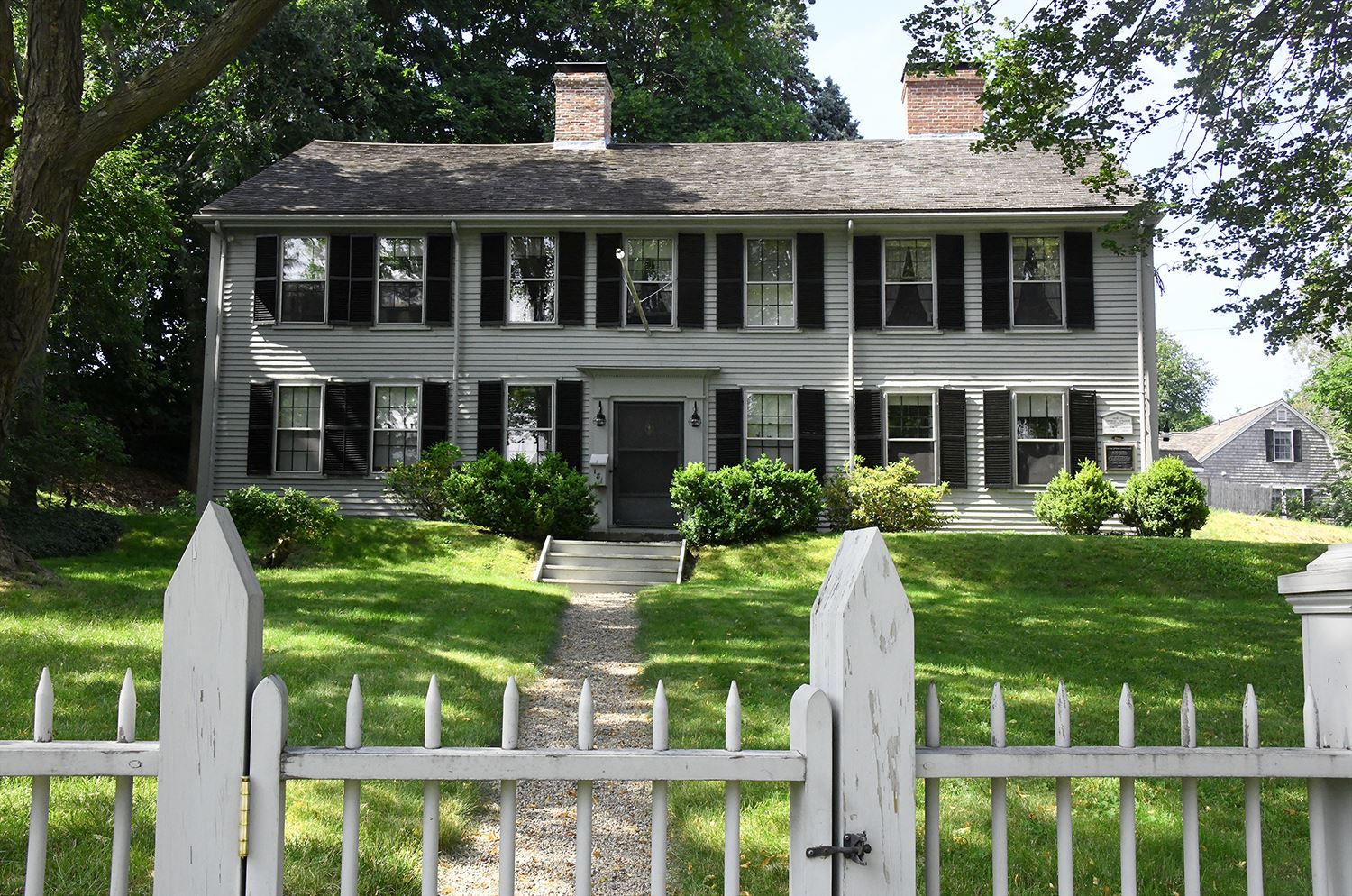
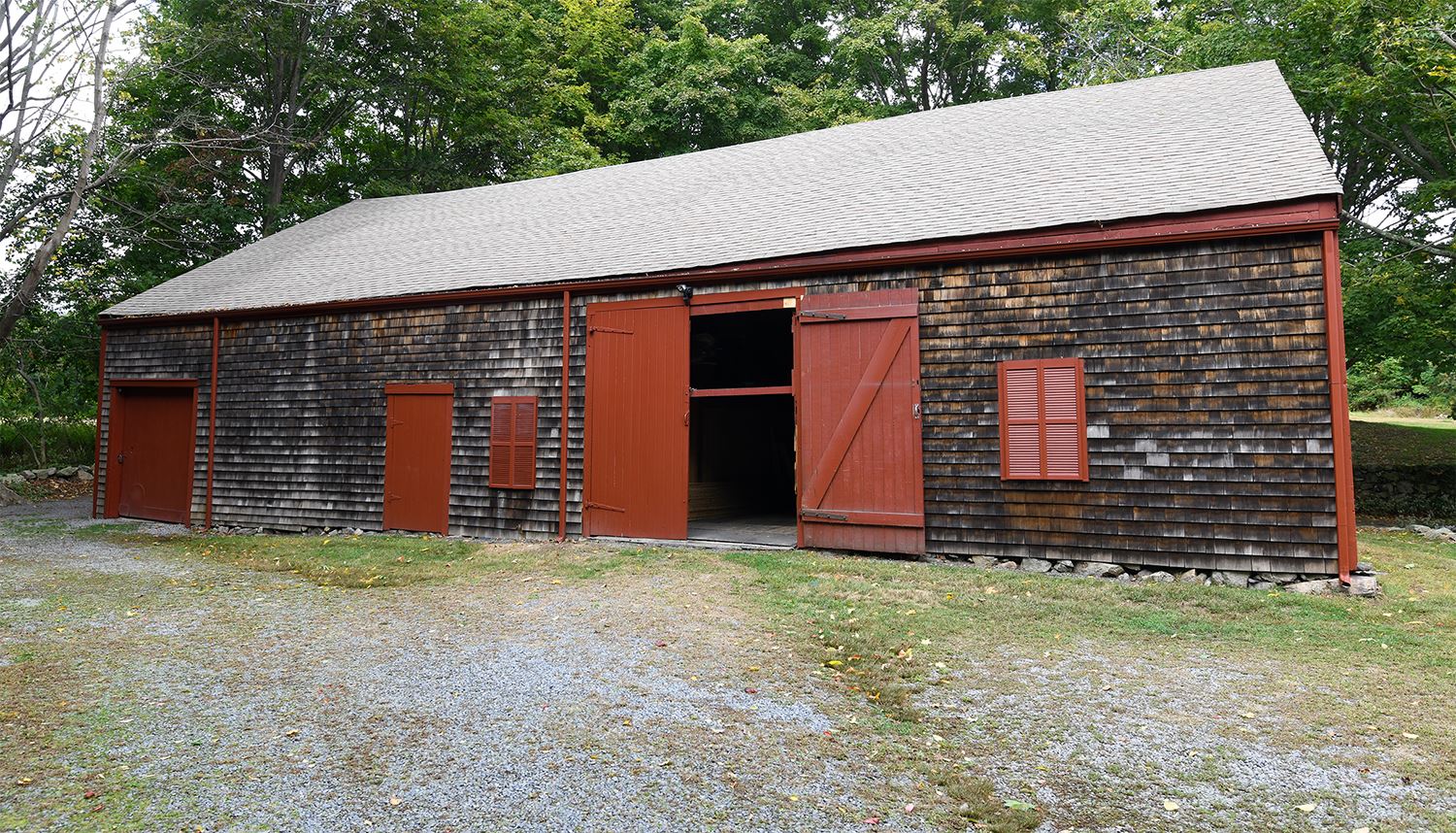
From Iron Bog to Cranberry Bog
This tour introduces conference attendees to sites connected to industrial, immigration, and racial patterns in Southeastern Massachusetts. In the region's low-lying wetlands capitalist entrepreneurs successively developed bogs for iron extraction and processing, later for cranberry growing. First local residents, later immigrants from Europe and the Cape Verde Islands made up the labor force. Wankinco Bog, established c. 1880 by A. D. Makepeace, features a large scale corporate venture. By contrast, a Century Farm owned by a Finnish immigrant family shows small scale diversified production. A cranberry screenhouse with equipment intact reveals a key building type. We lunch at Tihonet Village, a large complex which shows the entire spectrum from iron era buildings through to modern cranberry culture. In the afternoon we stop first at Wareham Center. St. Patrick’s Church, a four building complex, served a large parish that included Irish, Italians, East Europeans, and Cape Verdeans. Architecturally the complex reflects choices to stay within a local idiom. Around the block are the 1939 Makepeace company headquarters and a New Deal era cranberry mural at the Post Office. Next we travel to the Tremont Nail Works, an unusual iron era survival made possible through custom nail production. The day concludes in Oakdale, a Cape Verdean neighborhood that was shaped by both restrictive covenants and the resourcefulness of its creators. This tour includes sites with uneven, sandy, and possibly damp surfaces. Attendees should wear closed-toed shoes. This tour was developed and will be led by Sally McMurry.
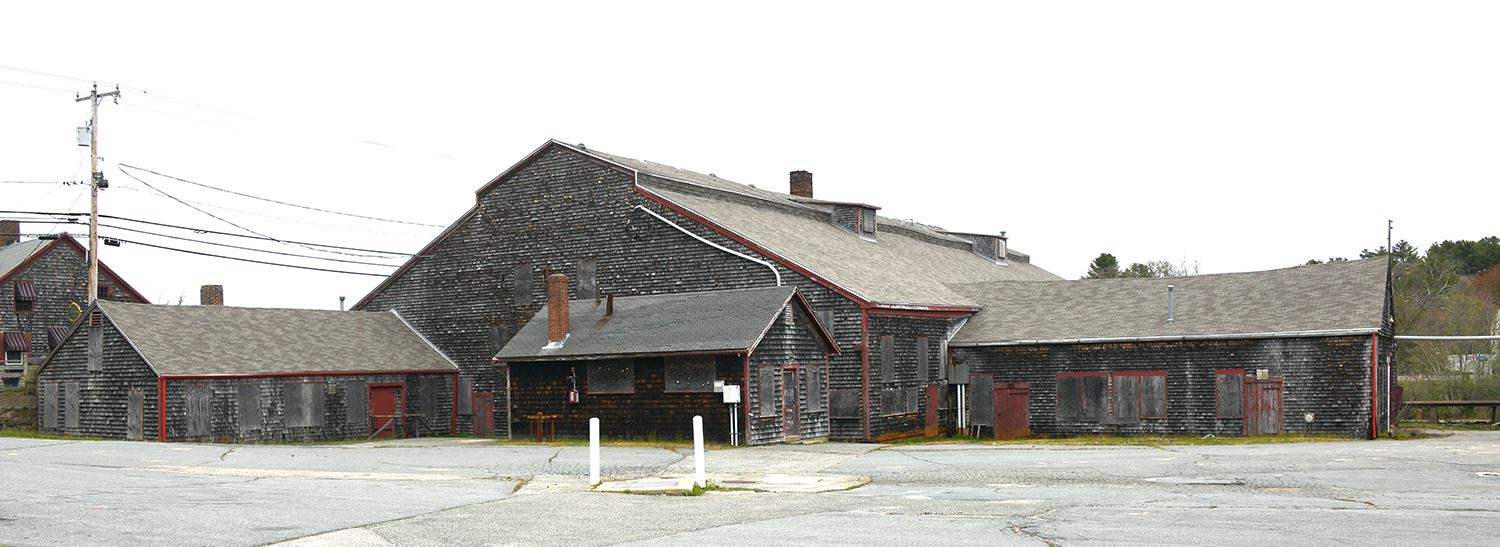
Friday Plymouth Center-Wellingsley-Chiltonville
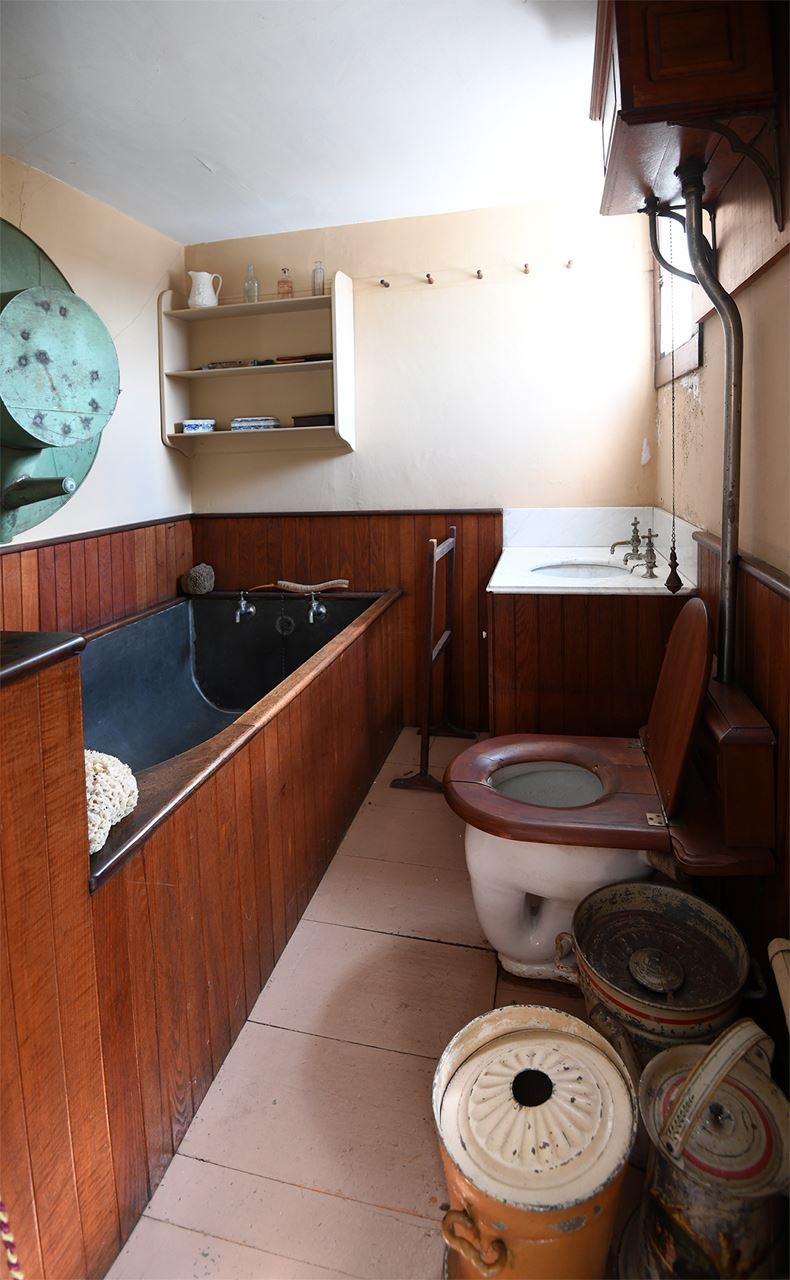
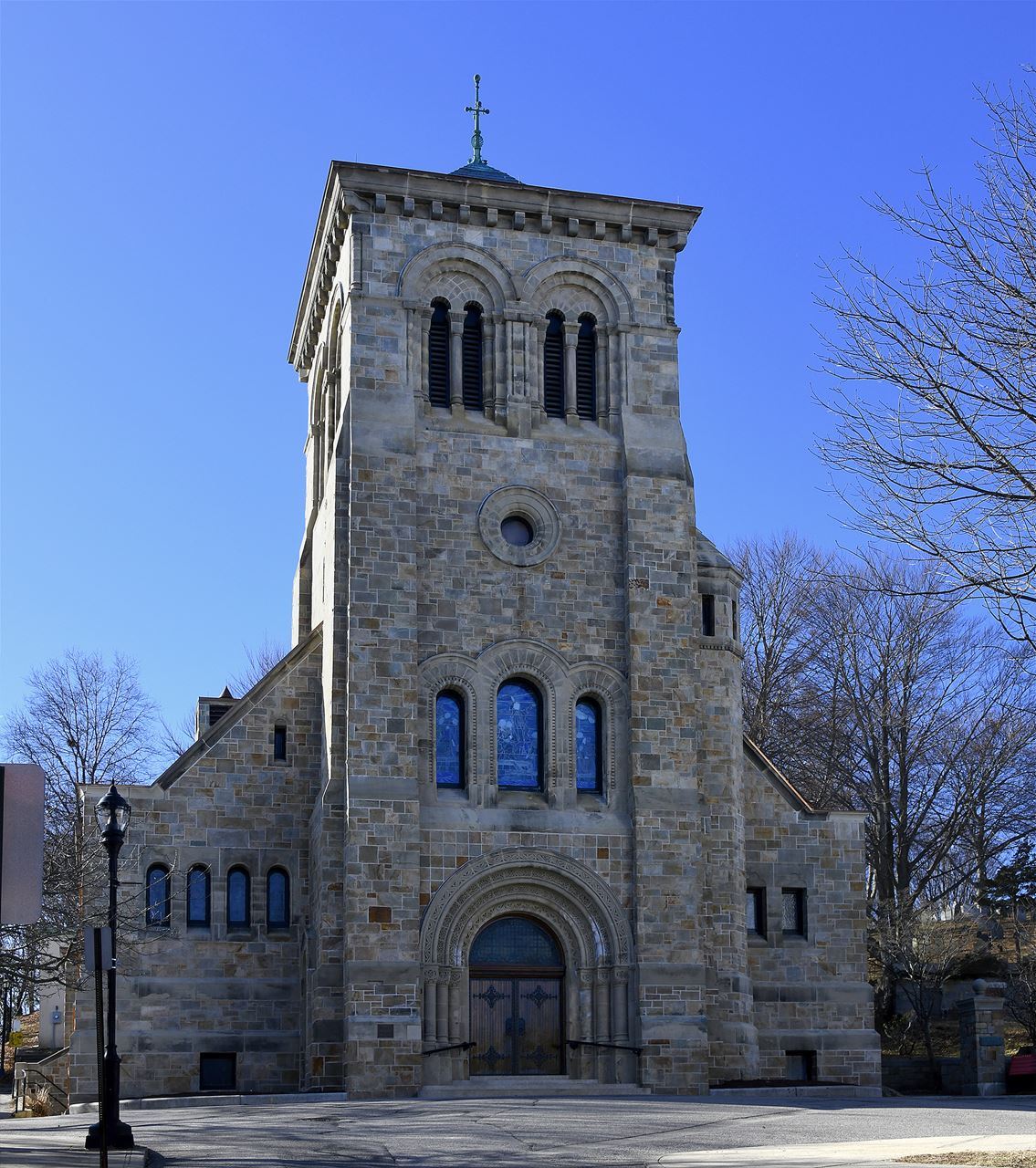
.jpg)
This tour concentrates on Plymouth Center and the nearby neighborhoods of Wellingley and Chiltonville. Access the latter two neighborhoods via a trolley starting at 9:00 a.m. at the Hotel and thereafter, cycling back and forth between Town Square and the Plimoth-Patuxet Museum. Trolley service ends at 1:00 p.m. The open properties in Plymouth Center are within walking distance of the 1620 Hotel or the Town Square trolley drop off.
The focus of the day is on layers of change, including the maritime economy, town and county government, industrial development and worker housing, tourism, monuments, and the tensions between modernization and historic preservation. Tour buildings include the John Churchill House (1661), the Spooner house furnished with the family’s household possessions (1738-1952), the Bartlett-Russell-Hedge House (1803), the Hammett-Hedge House and stable (1809), Plymouth’s Center for the Arts and Russell Library, the 1749 Courthouse, and Colonial Revival dwellings. These structures illustrate multiple eras of renewal, including laundry and work areas, pantries, ice refrigerators, kitchen appliances, bathrooms, lighting systems, heating and cooling technology, and servant call systems. Streetscapes, gravestones, and historical monuments preface complex conversations about intentions, representation, historical myths, and public site interpretation in a modern economy dependent on cultural tourism and commuting to Boston.
Finally, the Tour Guide includes short descriptions of Plymouth Center’s streetscapes including the breakwater that stretches far out into the harbor. Lunch and dinner at varied price points is on your own at the many Plymouth restaurants, bars, cafes and eating spots.
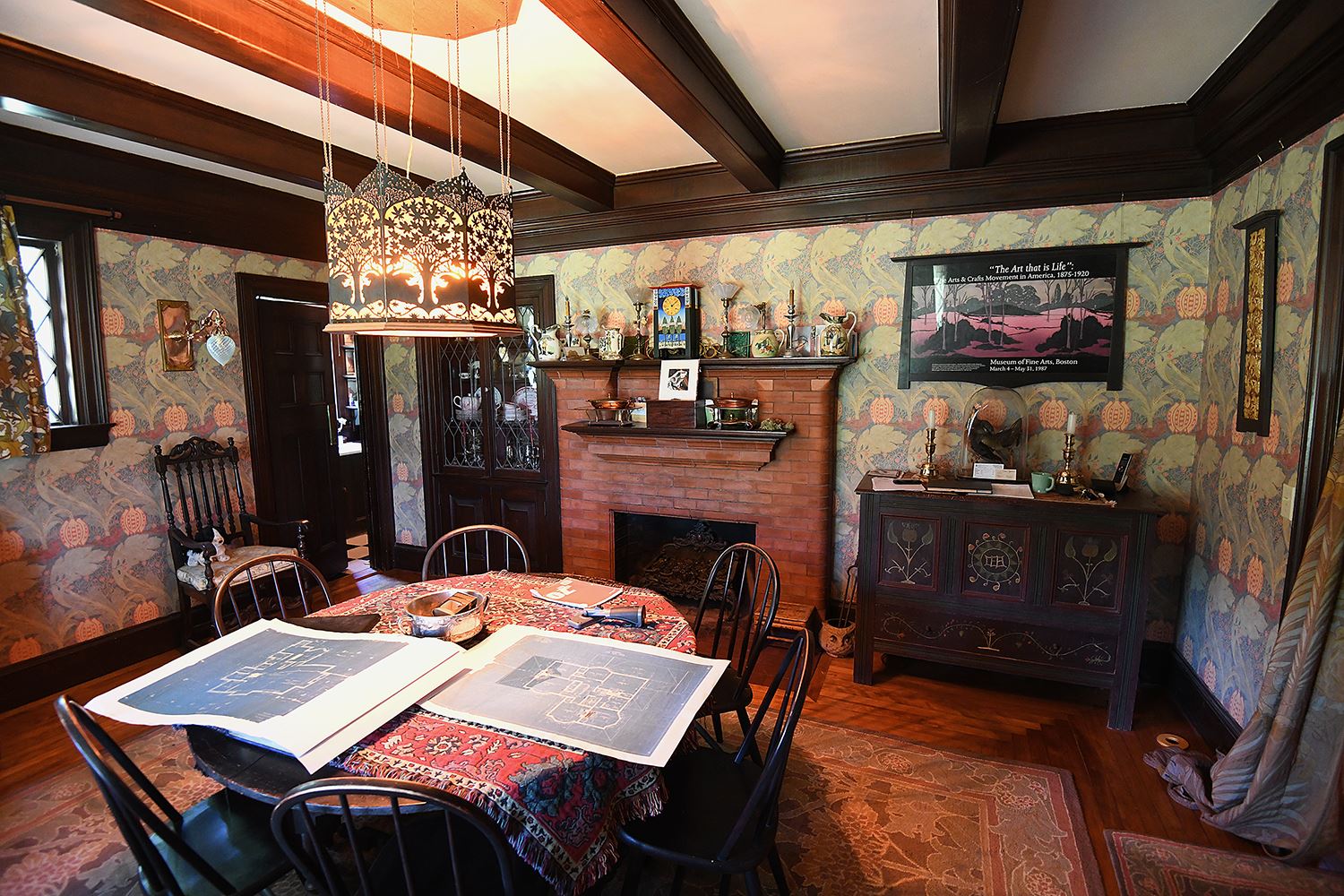
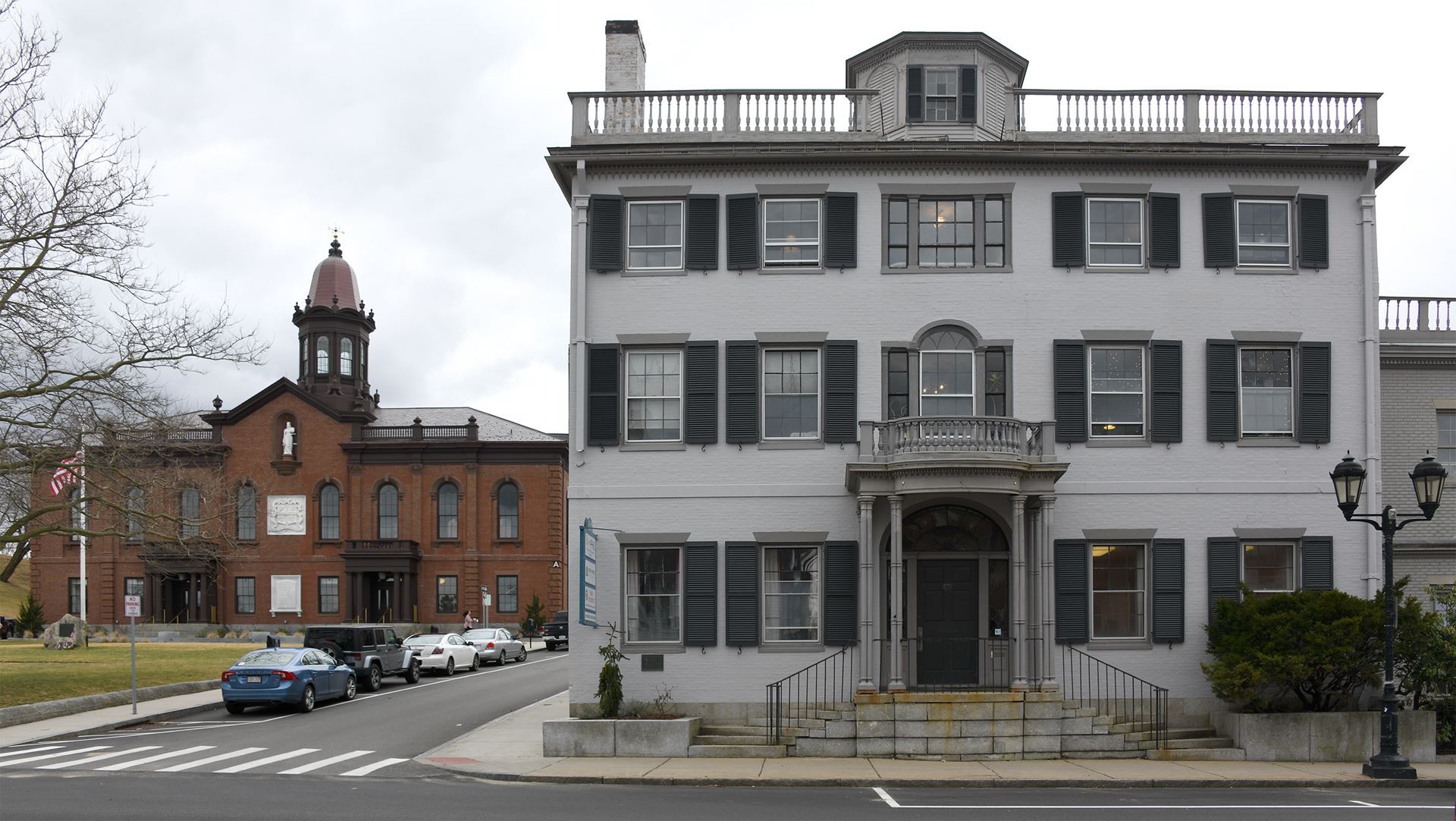
Saturday Paper Session and Banquet
Paper and Poster Session will be held on Saturday at the Hotel 1620.
Conference Details
The conference is headquartered at Hotel 1620. Lunch on Thursday will be part of the Bus Tours. Registration will open on January 31, 2023.
Please note:
-
The opening reception, keynote event and awards is from 5:00-7:30 pm on Wednesday. The keynote and awards will begin at 6:30 pm. Make your travel plans accordingly.
-
There will be an option to add open ended tickets to tour Plimoth-Patuxet and the Mayflower during the conference (Wednesday through Sunday).
-
The Martha's Vineyard and Early Builders tours are limited, so register early.
-
Friday’s Plymouth Central-Wellingsley-Chiltonville tours include some self-guided walking, but a trolley will transport conference attendees to central locations from the Hotel 1620 between 9 am & 1 pm.
-
Please contact the conference organizer if you have mobility issues that may need more assistance.
Contact Michelle Jones, VAF Conference Coordinator with questions about the conference.
We look forward to seeing you in Plymouth!
